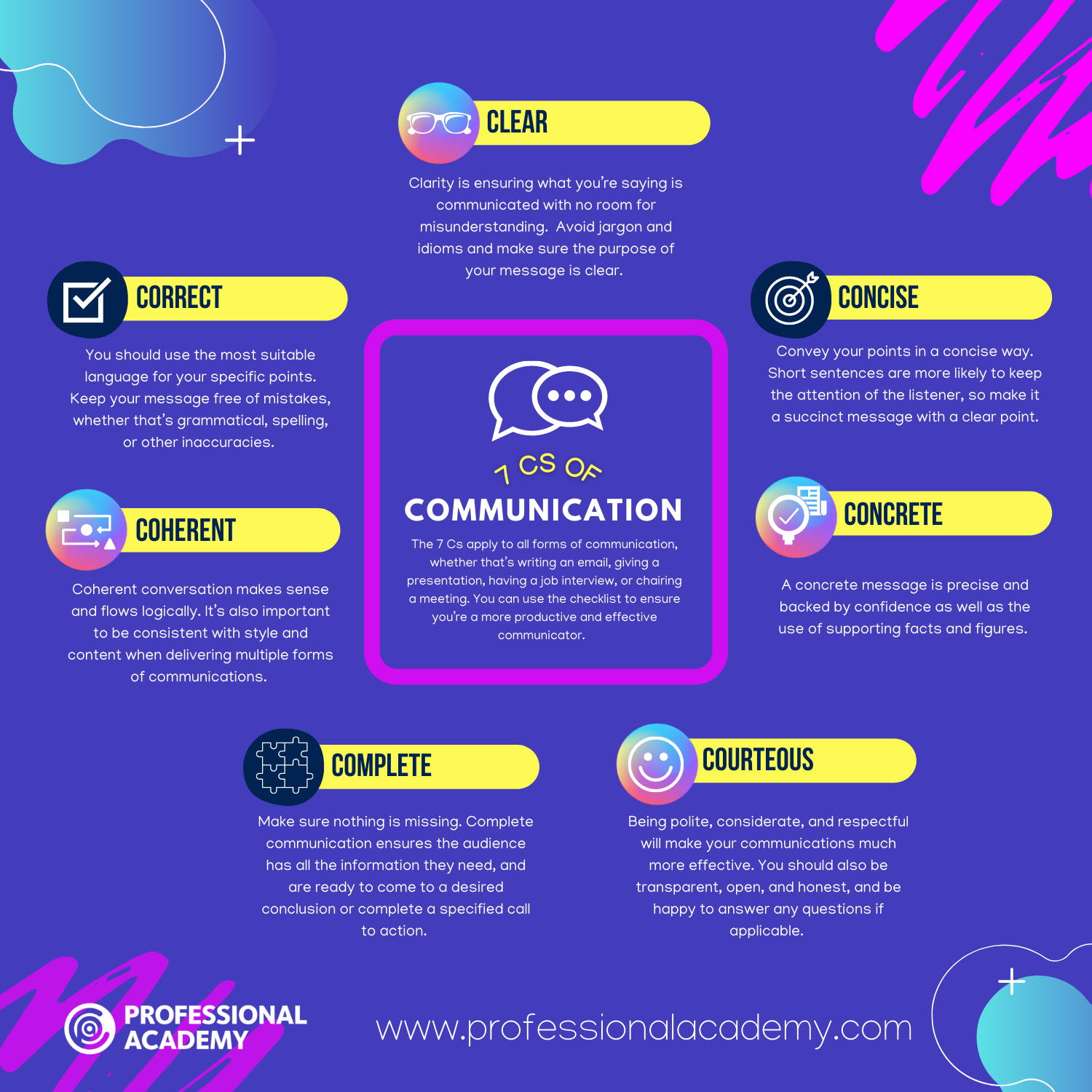




Whether at work or during our personal lives, good communication skills are essential. They can improve relationships, further your career, and build your social confidence. So how can you make sure you’re communicating to the best of your abilities?
The 7 Cs can help. They can be applied to all forms of communication, whether that’s writing an email, creating marketing content, giving a presentation, having a job interview, or chairing a meeting. You can use the 7 Cs of communication checklist to ensure you’re a more productive and effective communicator:

Clarity is ensuring what you’re saying is communicated clearly and with no room for misunderstanding. Good advice for being clear includes:
Convey your points in a succinct and concise way. Short sentences are more likely to keep the attention of the listener, so try to use as little words as possible to communicate your message.
Concise communication is non-repetitive, saves time, and is more comprehensible for the audience.
A concrete message is precise and backed by confidence as well as the use of supporting facts and figures.
You should use the most suitable language for your specific message, and the best form of communication. Correctness also means keeping your language free of mistakes, whether that’s grammatical, spelling, or other inaccuracies.
Coherent conversation makes sense and flows logically. Think carefully about the order of your points and how you can make it come across in an easy-to-understand way. It’s also important to be consistent with style and content when delivering multiple forms of communications.
Make sure nothing is missing. Complete communication ensures the audience has all the information they need, and are able to easily come to the desired conclusion. Good ways to be complete include:
It’s important to be polite and respectful of your audience. Being friendly, considerate, and professional will make your communications much more effective. You should also be transparent, open, and honest, and be happy to answer any questions if applicable.
So now you can see how the 7 Cs is a versatile tool that can be adapted for use in any form of communication. If you want to further improve your communication skills and confidence at work, why not check out our range of Marketing, Management, and Sales qualifications? With study options to suit you and course content designed for the workplace, a professional qualification is sure to boost your career.
Copyright © 2024 Professional Academy All Rights Reserved.